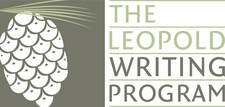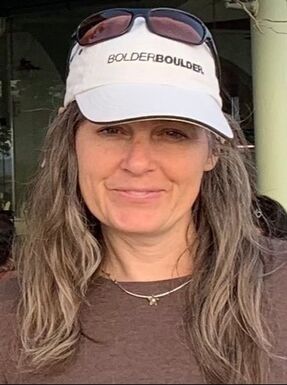Emily Wortman-Wunder / 2020 October
|
A former wildlife biologist, Emily Wortman-Wunder’s work explores the ties between people, landscapes, and the plants and animals with which we share those landscapes. Emily sees Aldo Leopold as a patron saint, not only because of his brilliant writing and thinking, but because he came to his most radical work from limitations – first the practical limitations of his job and his career, and then the physical limitations of his illness (a near-fatal attack of Bright's disease in 1913 incapacitated Leopold for over a year).
Emily’s stories, recently collected in Not a Thing to Comfort You (University of Iowa Press), focus on nature as a thing that is whole and beautiful, and describes the ways that living close to nature challenge and change us. It wasn’t until her thirties that, working as a technical editor for a professional engineering society and spending leisure time driving kids to sporting events, she began to question her earlier trust in the restorative power of nature and be drawn toward theories of “dross scape” – what landscape becomes when it is wasted and abused. Her current work interrogates our persistent desire to connect to that damaged landscape, what that connection looks like, and how these degraded landscapes affect the communities living in and around them. Recent examples of her writing and thinking include “Prairie in Hock” (Kenyon Review Online) about the conversion of the former superfund site at the Rocky Mountain Arsenal into a 15,000-acre nature preserve, and “Looting: An Archaeology” (forthcoming from Guernica) about the ways Euro American culture has damaged the landscapes of the past in its relentless search for knowledge. Emily is finishing a novel, Terrain Vague, which updates the aesthetic and moral considerations of Aldo and Estella Leopold for the suburban environment of the 21st century. The novel extends the tradition of the Leopolds by radically reimagining how we live with and connect to nature, and the chance to live and work in these former compromised landscapes. Emily Wortman-Wunder is currently an Assistant Professor at the University of Colorado Denver. Her work has appeared in High Country News, The New Territory Magazine, the Earth Island Journal, and Birder’s World. |



